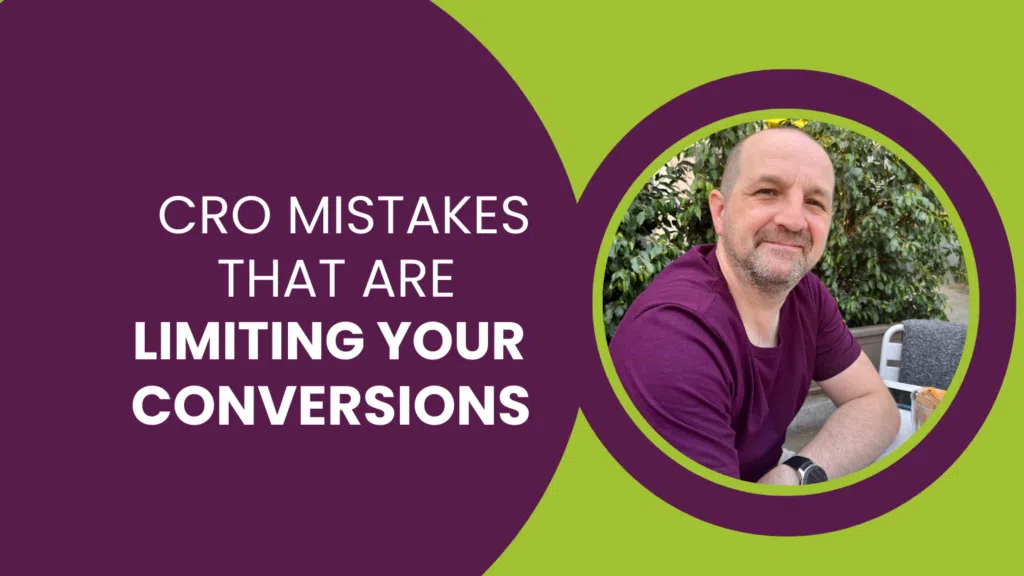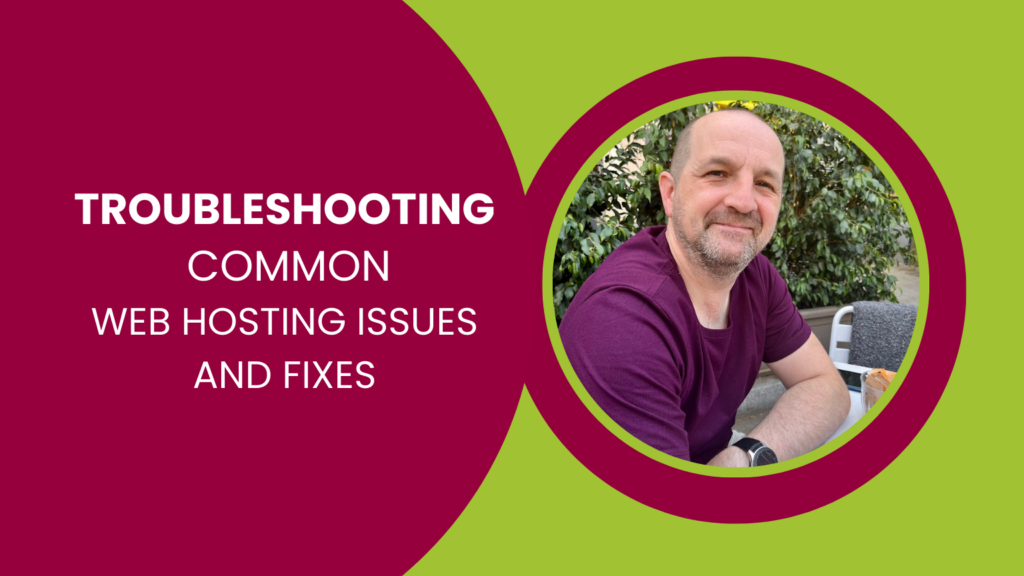Fact: Organic search is still the main driver of traffic online. It accounts for 51% of total traffic to websites, while paid search and social media can only manage 10% and 5% respectively.
Meanwhile, in the face-to-face arena, about 80% of marketers believe live events are critical to their companies’ success, according to Bizzabo. But, what if you marry both marketing channels together? With a holistic online and offline approach, you can engage with prospects online – let them experience your company through a live event, and convert them to fans and customers for life!
Sounds good, eh?
However, bridging the gap between digital and face-to-face marketing requires many building blocks, and a well-optimised event website is one of them. If you plan and promote conferences, live shows, or seminars, whether for clients or your business, you will want to read this guide. Discover how you can create a rock-solid foundation for your event website and boost its online presence so attendees can find it.
Set a rock-solid foundation for your event website through proper on-page optimisation
Most SEO discussions online talk about link-building (more on this later), and this makes perfect sense. Google still uses links to measure how well a website should rank. Not to mention getting back-links from the right places can also drive traffic to your website.
But for those links to work, you need to have solid on-page optimisation, which not a lot of people talk about, as it can get highly technical!
The following on-page optimisation tips, however, isn’t rocket science. You will encounter some slightly advanced tactics, but nothing you can’t handle with a little elbow grease.
Keywords are very much alive!
Natural language processing made impressive strides in recent years. The best search engines can now identify similar terms for a search query, meaning you’d have to worry less about small changes in the words or phrases you use in your content. But make no mistake:
Keywords are still an important part of SEO. Think about how prospects would search for the latest marketing conference in New York. Would they type in a complete sentence, say, ‘What’s the latest marketing event in New York’? Or, are they more likely to type in a phrase like ‘New York marketing conference 2017’?
Most users will take the second route. Your job then is to find those combination of words and phrases that people use to look up your event.
If you’re running, say, a convention or trade show that’s already quite popular, optimising the website for your event’s name makes perfect sense. Doing so is an excellent way to attract people, who’re already familiar with the show, to your website.
However, you need to target other keywords if you want to capture audiences who aren’t yet aware of your event’s existence.
Quick tip: if you’re just getting started with SEO and your event website is yet to build authority, go for long-tail keywords. These phrases often have three or more words, like ‘Miami bridal expo 2017’.
They may not get as many searches as their short-tail counterparts (example: bridal expo). But, long tails are less competitive and more specific than the former.
Mark has a post on the benefits of using long-tail keywords in your digital marketing strategy, and you will want to check that out.
Titles, meta descriptions and headings
So, you got a list of keywords you want to target with your event website. Now what? Back in the day, you’d only need a simple strategy (if you can call it that) to rank: slap the keywords wherever you can!
High keyword density was the name of the game about a decade ago. If you want to get to the top result for ‘consumer electronics trade show’, you only needed to stuff every page of your site with the target keyword. Today, however, keyword stuffing will result to a penalty.
Instead of density, you now need to consider keyword placement. Using the target phrases in your prose is always welcome, of course. But know that putting keywords in strategic places can help your site’s rankings.
These important locations include:
- The title tag
- Meta description
- Headings
When optimising these sections for keywords, bear in mind that you’re not just writing for search engines and their crawlers. More importantly, you’re writing content to attract potential attendees.
So don’t settle for a mediocre title, description or heading with your keywords in it. Be sure to use tried-and-tested copywriting techniques, too, like speaking to the reader, using emotional and trigger words, and adding calls to action.
You will also want to keep the following best practices in mind:
- For title tags…
- Use a unique title for every page
- Put important keywords first (just don’t overdo it)
- Keep it 50-60 characters long
- Add your brand
- For meta descriptions…
- Include a call to action like ‘register now’
- Maintain an active voice
- Add secondary keywords
- Use a unique description for every page
- Keep it 135-160 characters
- For subheadings…
- Capture the essence of the following paragraphs
- Create curiosity, personality and/or surprise
- Mentions the keywords naturally
Writing amazing titles, descriptions and headings is a topic that deserves its own post, even an entire book. But the tips outlined above will set you on the right track.
Use a responsive design
Google loves responsive websites, and the world’s biggest search engine released a series of changes to show it.
First on the list is the mobilegeddon of April 2015 which gave mobile-optimised and responsive websites a significant edge over desktop-only sites. And earlier in 2017, Google Webmaster Trends analyst Gary Illyes announced the slow roll-out of the mobile-first index at the SMX East conference.
Google’s strong preference for websites which render well on whatever device or screen the user has makes perfect sense.
A website made for wide screens only may look fine on desktops and laptops, but not on smartphones. That isn’t good enough considering more than 50% of search engine queries around the world come from mobile devices.
In the US alone, mobile search accounts for 58% of the country’s overall volume.
So, go for a responsive design when building your event website.
Doing so will not only earn you ranking points from Google. But, it will also deliver a smoother experience to prospective attendees looking up your event through their phones, bringing them a step closer to registering for your conference, exhibit, or workshop.
To learn more about responsive design and mobile-friendliness, check out Google’s guidelines right here. And while you’re at it, use the mobile-friendly testing tool to see if your website is easy to use on a mobile device.
Boost website and page speed
People at Google don’t just love responsive sites. They’re also obsessed about speed in their products and on the web.
They even ran an experiment in 2009 where slowing down the search results page by 100 to 400 milliseconds translated to 0.2-0.6% fewer searches per user. The numbers may not sound much, but they’re a big deal at the scale of Google web search.
Google didn’t take long to release an update to reflect their findings. In 2010, site and page speed became part of the search engine’s ranking algorithm.
Site speed indicates how quickly a website responds to a user’s query. The higher the speed, the happier the user. Slow websites, on the other hand, are a turn-off and visitors are likely to spend less time on such sites. Even worse, a one-second delay in load times can reduce your event website’s conversion rate by up to 7%!
Fortunately, you have plenty of options to increase your site speed, including:
- Minimising HTTP requests by reducing scripts and combining multiple style sheets
- Optimising images and compressing other content so they download faster
- Streamlining and minifying HTML, CSS and JavaScript
- Reducing the number of plugins you use
Of course, the exact tactics you should use will depend on the content and the platform you use for your event website.
To get recommendations specific to you, go to Google’s PageSpeed Insights tool. Simply enter the URL and let the tool do its work. The resulting page will give you an overall score as well as optimisation steps to improve the site’s load times.
Don’t forget to use event schema!
While today’s search engines have come a long way, they are yet to arrive, so to speak. For example, not even Google can read the contents of a video. And as far as unstructured text is concerned, the best they can do is guess what the page is about.
Use schema to help Google and other search engines better understand your event website’s contents.
Schema is a structured data markup that adds context to your content. This line of code is often added using JSON-LD and helps engines return with more helpful information (aka rich snippets) for users.
Event schema is one of the newer types of structured data supported by search engines. It encompasses just about every essential detail for your event – from the venue, start and end dates, and offers like ticket giveaways, to sponsors and more in between. Getting it right is important. Remember to check your schema markup implementation to ensure you get the best results.
Plus, you will also find schemas for specific types of events like:
- Exhibitions
- Festivals
- Business conferences
- Courses and workshops
- Sporting events
The extra links to important information and pages not only help potential attendees navigate the website easier. But, the larger space the entire result takes is also more likely to attract eyeballs and clicks. Precisely what you want for your event website!
Simple but effective link building techniques every event planner and marketer must know
Now that we already know how to better optimise our event website at a technical level, it’s high time we add some link building tactics into our arsenal.
A quick search on Google will yield thousands of how-to guides, case studies, dos and don’ts for link building. And while you can tweak these guides to suit your needs, planning and running an event creates link building and earning opportunities you wouldn’t have otherwise.
The following sections will show you how to take advantage of those!
Offer testimonials to event suppliers, vendors and partners
When you plan and run live events, you get to shake hands and rub shoulders with different folks and businesses including:
- Keynote speakers
- Photographers
- Stationery designers
- A/V and event equipment hire companies
- Promotional products distributors
- Caterers
Among this list, you can probably find three, four, five, or even more people and organisations who’d love to get a testimonial from you. If they did a genuinely awesome job for you and your business, why hold back?
Giving testimonials is a win-win.
The person or business on the receiving end gets a nice reputation boost should they publish the testimonial on their site. And from a link building and digital marketing perspective, testimonials are excellent low-hanging fruits.
The links you get from a testimonial are 100% editorial. Not to mention they reflect your relationship with the service provider or vendor.
And since all parties get something positive out of the deal, people are much more receptive to giving links in exchange for testimonials than standard, out-of-the-blue link prospecting emails.
Add your event to listing websites
Event listing websites and directories are another low-effort opportunity to build up your event’s online presence for a number of reasons.
For starters, the best event listing sites have top-notch SEO and a lot of authority, meaning your listing can land on the first page without any extra effort on your part. Even better, these sites want to provide comprehensive information to their visitors to keep them coming back. They allow you to add all the essential information and a backlink to your event’s website!
Bottom line: you want to get your event listed on as many high-quality directories as possible.
The following websites are good places to start:
- All Events
- Yelp
- Facebook Events
- Eventoozi
- All Conference Alert
- Conferize
- Exhibitions UK
- Expofairs
You will also want to use Google to find listing sites tailored for your niche or industry. Start by typing in “[your industry] [type of event] [year]” into the search bar.
For example, if you’re running a conference for software developers, search for ‘software development conferences 2018’.
Note that not all of the resulting pages you get using this simple technique are listing websites. Some pages are round-ups by bloggers and influencers in the industry. You can, of course, reach out to these publishers and convince them to add your event. But your success rate won’t be as high compared to getting published on listing sites.
However, you can also find gems – highly relevant event directories you won’t find otherwise. Using the example above, scanning the first page led me to SoftDev Conferences, a site you want to be in if you’re running a programming and software development conference!
Approach local publications, journalists and blogs in your industry
So long as you’re creating an event that people actually want to go to and helps the community, you shouldn’t shy away from approaching or even cold emailing journalists, blogger, and publications that cover your industry.
Not everyone will respond. But one or two prospects may blog about your event, send someone to cover it, or share the details with their followers at least.
When you reach out via email, however, keep the message to the point. You will also want to give them an incentive or an emotional reason for promoting your event to their network. If they’re passionate about the topic of, say, your seminar or workshop, emphasise that in your email.
And before we end this section, don’t forget to tweak your email to avoid spam filters.







